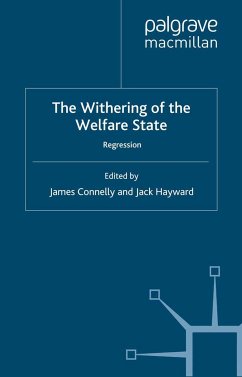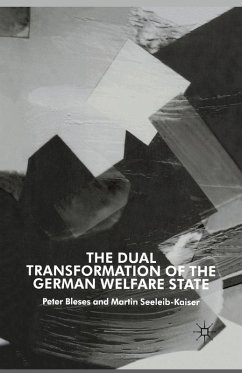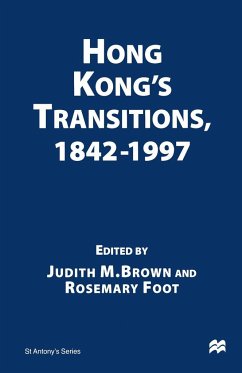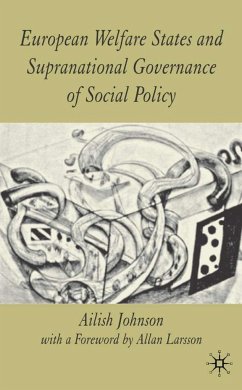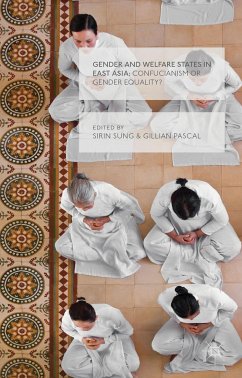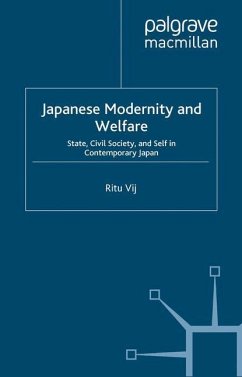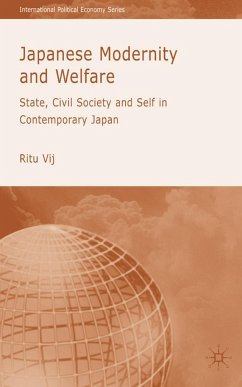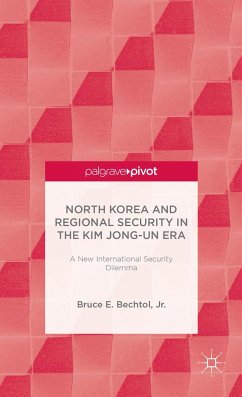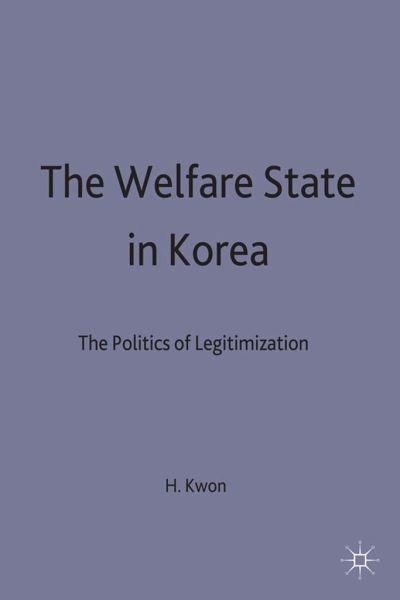
The Welfare State in Korea
The Politics of Legitimization
Versandkostenfrei!
Versandfertig in 6-10 Tagen
76,99 €
inkl. MwSt.

PAYBACK Punkte
38 °P sammeln!
Through the analysis of institutional dynamics Kwon argues that social policy development in Korea is not due to common exogenous factors such as international or union pressure but to the desire of the weakly-legitimated government to have itself legitimized. Such political rationale is deeply embedded in the structure of social policy institutions and particularly in the way that the state has played a part in financing social welfare programmes. Kwon shows that the role of the Korean state is characterized as essentially that of regulator-type rather than provider.





